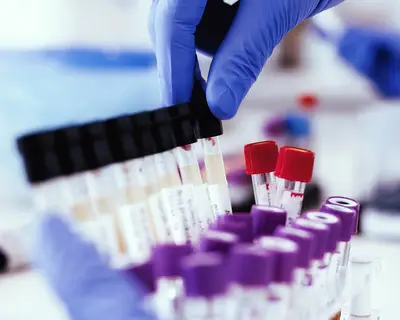RESEARCH TRIANGLE PARK, NC – As part of its commitment to professional excellence in forensic sciences, RTI International announced today it has assumed ownership of the Medical Review Officers Certification Council (MROCC), a non-profit corporation that credentials highly-qualified physicians who review and interpret drug test results as Medical Review Officers (MROs). Through this agreement, RTI will leverage its Center for Forensic Sciences (CFS) and extensive capabilities in forensic toxicology to improve the quality and reliability of drug testing interpretation in collaboration with MROCC’s experts.
“RTI is focused on raising quality in forensic science through professional training and continuing education,” said John Morgan, senior director of RTI’s CFS. “We’re excited to add MROCC to our robust portfolio of forensics research, training, and quality assurance programs designed to improve the practice of forensic science.”
More than 60 percent of large private employers require drug and alcohol testing, and more than 20 million forensic drug test specimens are processed by certified laboratories every year. The results of these laboratory tests are reviewed and interpreted by thousands of highly-qualified physicians acting as MROCC-certified MROs. These physicians evaluate test results in view of the employee's medical history while protecting his or her privacy to avoid falsely accusing an employee of illicit drug use. MRO certification fosters the highest professional standards for this important work.
The CFS manages a wide range of programs complementary to the work of MROCC, including the National Laboratory Certification Program (NLCP) for the Substance Abuse and Mental Health Services Administration. NLCP laboratories conduct many of the drug tests that MROs review. CFS researchers are examining physiological responses to the use of illicit drugs, as well as the ways that drugs and their metabolites are incorporated into toxicological matrices such as hair, urine, and oral fluid. RTI’s deep experience in forensic toxicology is a good match with MROCC’s respected program to implement the latest scientific understanding in the MRO profession.
As part of the transaction, RTI will adopt the guidelines of MROCC’s Exam Development Committee for review and input on examination and certification materials in order to maintain continuity and continued commitment to quality and professional standards. In addition, members of MROCC leadership will become part of an advisory committee, separate from RTI’s governance or corporate management structure. MROCC staff will transition to RTI and continue to support the operations of MROCC. Terms of the agreement are not disclosed.
RTI is the lead implementer of the National Institute of Justice’s Forensic Technology Center of Excellence, which provides evidence-based resources about forensic technologies and emerging challenges across every forensic science discipline and improves the transition of new ideas into practice in crime laboratories. The Institute’s online training platform is a national resource with the latest information on science and technology for the forensic science community. Its rigorous, multidisciplinary approach is designed to meet the unique, complex needs of clients in government, education and private industry.

- RTI International has assumed ownership of the Medical Review Officers Certification Council (MROCC), a non-profit corporation that credentials highly-qualified physicians who review and interpret drug test results.
- The program complements RTI's extensive capabilities in forensic sciences, including the the National Laboratory Certification Program (NLCP) for the Substance Abuse and Mental Health Services Administration.
RTI International Media Relations: